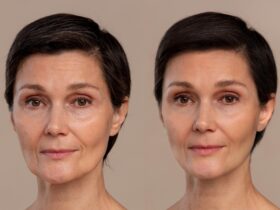Obsessive-Compulsive Disorder (OCD) is a mental health condition that affects millions of people worldwide. It is characterized by intrusive thoughts (obsessions) and repetitive behaviors or mental acts (compulsions) that individuals feel driven to perform. OCD can be a debilitating condition, impacting daily functioning, relationships, and overall well-being. In this blog post, we will explore the complexity of OCD, including its symptoms, causes, and available treatment options.
Understanding OCD:
OCD is more than just being overly organized or excessively clean. It involves a cycle of obsessions and compulsions that can significantly interfere with a person’s life. Obsessions are intrusive and distressing thoughts, images, or urges that repeatedly intrude upon a person’s mind. Compulsions, on the other hand, are repetitive behaviors or mental acts performed in response to obsessions, aiming to alleviate anxiety or prevent feared outcomes.
Symptoms of OCD:
The symptoms of OCD can vary widely from person to person, but some common manifestations include:
- Contamination obsessions and cleaning compulsions: Fear of germs, dirt, or contamination, leading to excessive cleaning, handwashing, or avoidance of certain objects or places.
- Symmetry and order obsessions and compulsions: The need for things to be arranged in a specific order, precise alignment, or exactness. This may involve repetitive arranging, counting, or organizing rituals.
- Intrusive thoughts and mental rituals: Persistent, unwanted thoughts or mental images that cause distress. Individuals may engage in mental rituals, such as counting or praying, to neutralize or prevent perceived harm.
- Hoarding: Difficulty discarding items, resulting in excessive accumulation and clutter that can interfere with living spaces and daily activities.
- Checking rituals: An overwhelming urge to repeatedly check things, such as locks, appliances, or personal belongings, to ensure safety or prevent harm.
Causes and Contributing Factors:
The exact cause of OCD is still not fully understood, but it is believed to involve a combination of genetic, neurobiological, and environmental factors. Some potential causes and contributing factors include:
- Genetics: There is evidence that OCD may have a genetic component, as the disorder can run in families. Certain genes and variations in brain chemistry may play a role.
- Brain abnormalities: Differences in brain structure, particularly in the regions involved in decision-making, planning, and emotional regulation, have been observed in individuals with OCD.
- Neurotransmitter imbalances: Changes in the levels of neurotransmitters, such as serotonin, dopamine, and glutamate, have been associated with OCD. These imbalances may impact the brain’s circuitry and contribute to the development of symptoms.
- Environmental factors: Traumatic life events, such as abuse, neglect, or significant stress, may trigger or exacerbate OCD symptoms in some individuals.
Treatment Options for OCD:
While OCD is a chronic condition, effective treatment options are available to help individuals manage their symptoms and improve their quality of life. Some common treatment approaches include:
- Cognitive Behavioral Therapy (CBT): CBT, specifically a form called Exposure and Response Prevention (ERP), is considered the gold standard treatment for OCD. It involves gradually exposing individuals to their obsessions while preventing the accompanying compulsive behaviors. This process helps individuals learn to tolerate the anxiety associated with obsessions and break the cycle of OCD.
- Medication: Selective Serotonin Reuptake Inhibitors (SSRIs), a type of antidepressant, are often prescribed to reduce OCD symptoms. These medications can help regulate serotonin levels in the brain and alleviate anxiety and obsessions.
- Mindfulness and relaxation techniques: Practices such as mindfulness meditation, deep breathing exercises, and progressive muscle relaxation can help individuals manage anxiety and reduce the urge to engage in compulsive behaviors.
- Support groups and therapy: Joining support groups or participating in individual or group therapy sessions can provide a sense of validation, understanding, and support from others who have experienced similar challenges.
- Lifestyle adjustments: Engaging in regular physical exercise, maintaining a healthy sleep routine, and adopting stress management techniques can contribute to overall well-being and symptom management.
Conclusion:
Obsessive-Compulsive Disorder (OCD) is a complex mental health condition that can significantly impact a person’s life. It involves a cycle of obsessions and compulsions that can be distressing and time-consuming. By understanding the complexity of OCD and seeking appropriate treatment, individuals with OCD can find relief and regain control over their lives. It is important to raise awareness, reduce stigma, and provide support for those living with OCD. With the right combination of therapy, medication, and support, individuals with OCD can learn to manage their symptoms and lead fulfilling lives.






